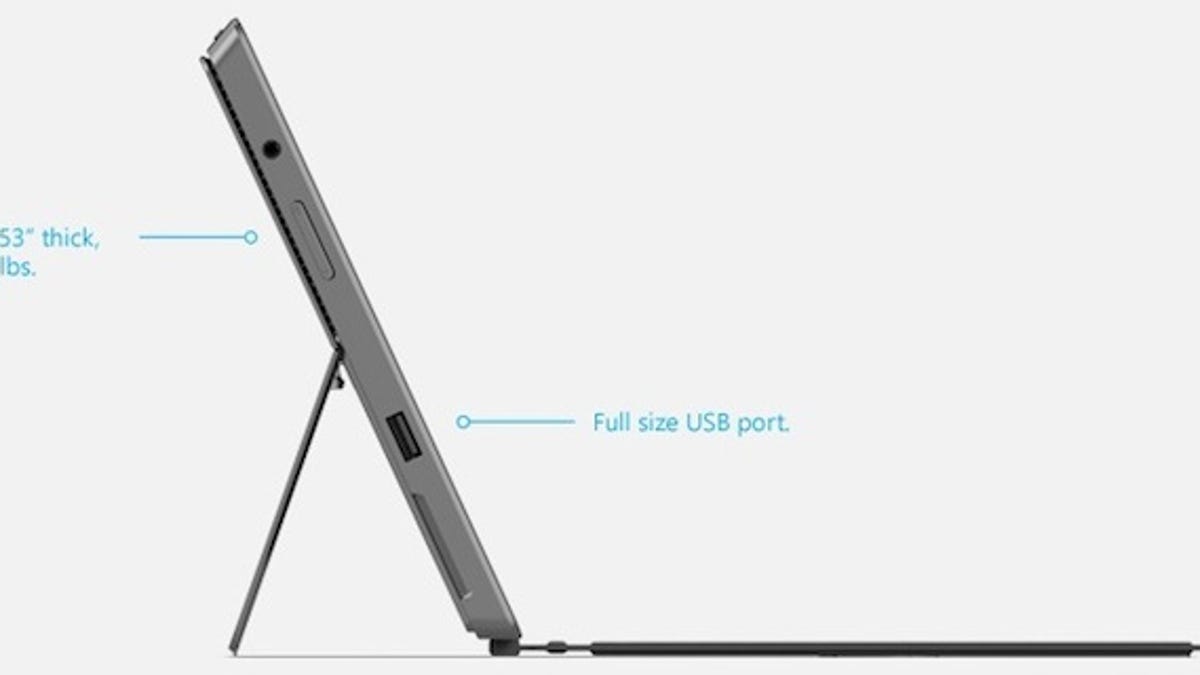Microsoft Surface Pro is more ultrabook than tablet
The core silicon in the Microsoft Surface Pro is not unlike that of an ultrabook. So, think of it as a hybrid ultrabook more than a pure tablet play.

Microsoft's Windows 8 Pro version of the Surface tablet got a cool reception today when pricing was disclosed and comments surfaced about battery life, but keep in mind that the core electronics scream ultrabook, not tablet.
After Microsoft announced pricing this morning, it was immediately panned for being too expensive and reportedly getting half of the battery life of the RT version.
Both legitimate concerns. Let's focus on battery life first.
Battery: A quick look at the specs tells you it's pretty close to an ultrabook -- and really thin ultrabooks, not unlike the Surface Pro's design, don't get all-day battery life like tablets do.
Pick almost any random Intel Ivy Bridge processor-based ultrabook review and this becomes clear.
Take CNET's HP Envy Spectre XT review for example. That packs a power-efficient Ivy Bridge Intel Core i5-3317U chip, probably very similar to the silicon inside the Surface Pro.
Here's what CNET said: "The system ran for 4 hours and 13 minutes in our video playback battery drain test."
And the Spectre XT has a 45 WHr (watt hour) battery similar to the Surface Pro's 42 WHr one.
Or consider the latest 11.6-inch MacBook Air, which is closer to the Surface Pro's dimensions. That ran for 5 hours and 17 minutes, according to CNET.
Of course, Microsoft may have devised a design that wrings out more battery life than a typical ultrabook. But even in that case, it probably won't be able to top the battery life of, for instance, Samsung's Series 9 ultrabook, which CNET rated at 6 hours and 55 minutes.
Display: Another thing to consider is the Surface Pro's very high resolution 10.6-inch 1,920x1,080 resolution display. That's 208 pixels per inch (PPI) versus 148 PPI for the Surface RT tablet.
I think it's safe to say, the more horsepower to drive all of those pixels, the better. Again, let's look at an ultrabook that HP is offering with the same 1,920x1,080 resolution for comparison: the Spectre XT TouchSmart Ultrabook. That comes with a higher-performance Intel Core i7-3517U Ivy Bridge chip but otherwise the silicon specs (e.g., Intel's HD 4000 graphics) are the same.
Obviously, Microsoft made the determination that it's better to use a mainstream Intel processor than a non-mainstream, slower Intel Atom Clover Trail chip -- despite the better battery life that Atom would offer.
Price: If your yardstick is Android or Apple tablets, $899 for a 64GB tablet and $999 for a 128GB model is too much. That said, whether right or wrong, Microsoft has said from day one (when Surface was announced back in June) that the Pro version would follow ultrabook pricing. And indeed it does.
So, will price or battery life be a deal breaker? We'll know in January.

